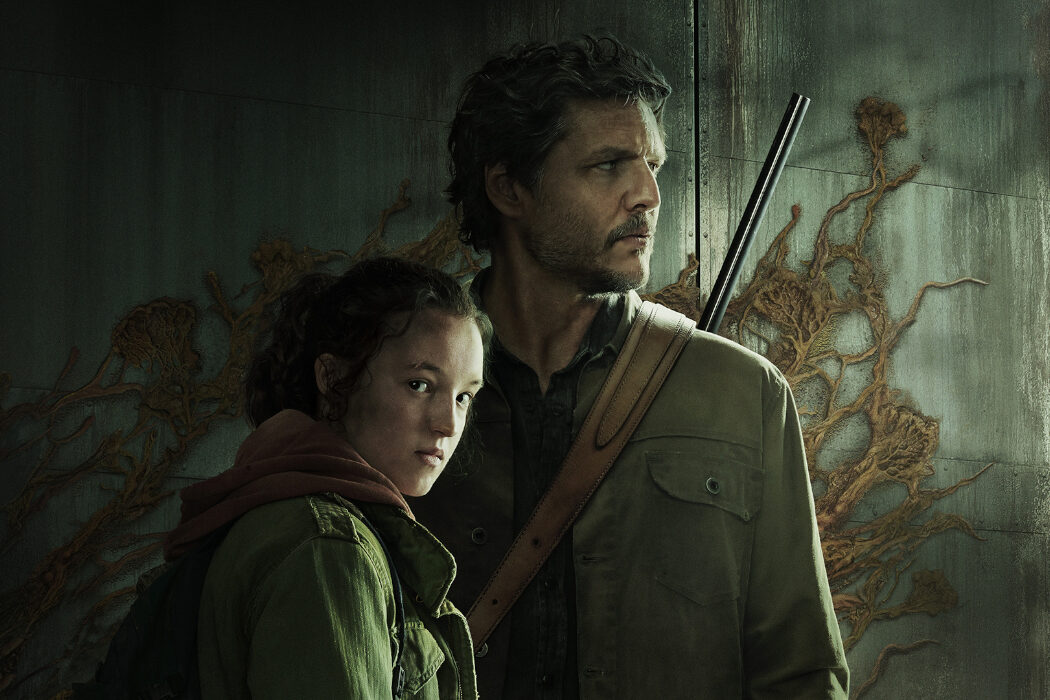‘The Last of Us’ Review: Everything a Great Video Game Adaptation Should Be
Starring Pedro Pascal and Bella Ramsey, The Last of Us HBO series brings one of the best video game stories to life.

The question of how to adapt a video game into another medium, such as a movie or TV show, is quite common. Although the list of successful adaptations is small, the trend appears to be improving. The Last of Us, a game developed by Naughty Dog, presents a unique case for adaptation. Its cinematic storytelling and strong character development make it well suited for adaptation. However, the player’s interaction with the characters of Joel and Ellie is a significant aspect of the game’s success, which may be challenging to replicate in another medium.
In an episode of The Official The Last of Us Podcast, actress Shannon Woodward commented on the game’s ability to make players feel like they are personally making decisions and taking the characters, Ellie and Joel, on a journey. Fans of the game feel a personal connection to the story, as if they were a part of the characters’ cross-country quest. This level of interactivity is one of the greatest strengths of video games as a narrative medium and The Last of Us is an excellent example of how immersive and impactful an interactive story can be. Adapting the game’s story to another medium is challenging as it requires maintaining the same level of care and dedication to the original story.
HBO’s adaptation of “The Last of Us” preserves the emotional impact and beauty of the original video game, while bringing new depth and nuance to the story. Created by the game’s director Neil Druckmann and “Chernobyl” writer Craig Mazin, the show feels like a re-imagining rather than a mere adaptation. While the overall narrative remains similar, the creative team has sharpened the story and character development, resulting in a companion piece that enhances the original experience in remarkable ways. “The Last of Us” stands as one of the best video game adaptations ever made, and already one of the top shows in 2023. It’s a perfect example of how adaptions should be done.
The story of The Last of Us takes place 20 years after a catastrophic outbreak which caused a majority of the world’s population to turn into hostile creatures known as Cordyceps, or die as a result of the outbreak. The main character, Joel, is a smuggler who is tasked with escorting a young girl named Ellie across the United States. Joel, having experienced the world before the outbreak, is hardened and scarred by the loss and destruction he has seen, while Ellie, born into this new world, still holds onto hope and wonder. As they journey through the dangerous landscape, they must confront the challenges and dangers of this post-apocalyptic world together.
The story explores the lives of people who have survived in a world overrun by creatures that act like zombies. It focuses on the characters of Joel, Ellie, and their supporting cast, showing how they have been affected by the destruction of the world, as well as the moments of joy and beauty that still exist in it. The first episode takes place in a quarantine zone in Boston, and graffiti can be seen throughout, bearing the message “When you’re lost in the darkness, look for the light.” The relationship between Joel and Ellie is a central theme and it is their bond that grows throughout the story. The actors playing the roles of Joel and Ellie in the television adaptation, Pascal and Ramsey, are not trying to recreate the performances of their video game counterparts, but rather bringing their own interpretations of the characters to life.
The story starts with Joel’s life on the day of the outbreak, then fast forwards to 20 years later where we see Joel, played by Pascal, as a man still struggling to come to terms with the loss he experienced that day. He is often quiet and reserved, but in moments of loneliness, we see him grappling with the impact the outbreak has had on his life. He is deeply grieving and doesn’t know how to move on. Pascal’s portrayal of Joel is heart-wrenching, but it makes the moments of humor, love, and compassion in the story even more powerful. Despite the fact that Joel has done terrible things, Pascal’s performance makes it hard not to feel empathy for him as he searches for purpose in his life.
Ashley Ramsey gives a noteworthy performance as Ellie, creating a realistic portrayal of a child in a harsh, post-apocalyptic world. Similar to her role in the film “Catherine Called Birdy,” Ramsey captures the innocence and wonder that a child would possess while also showing the character’s growth and maturity. Throughout the story, we see Ellie transform into a self-sufficient and courageous adult while still maintaining her hope and optimism, which makes her a joy to watch.
The Pascal and Ramsey tandem is quite perfect, they play brilliantly off each other. The game’s creators, Druckmann and Mazin, make the quieter moments especially powerful for this duo, showing them bonding over shared hardships, such as camping out for the night and telling jokes to each other. As their relationship blossoms, it has a subtle but powerful impact on both the characters and the audience. Even small actions, such as one character finding food for the other, or the way they develop a shorthand with each other, are infused with emotional resonance. The Last of Us shines particularly bright when Pascal and Ramsey are together, as their performances and character development combine to create something truly remarkable.
The Last of Us’ story is greatly enhanced by the depth of its supporting characters. It delves deeper into some characters’ stories, adds layers to existing ones, and makes small but impactful changes that fit well within the game’s universe. The characters encountered throughout Joel and Ellie’s journey not only reflect on who they could have been, but also feel like genuine, fully fleshed-out individuals with compelling stories of their own.
These characters in the series are evolving but the changes are only minor. For example, the character of Sarah, who is shown interacting with her neighbours and preparing for her father’s birthday. The relationship between Joel and his smuggling partner Tess is also explored through small interactions and a quick line, providing more insight into their relationship. Some characters, like Riley, don’t require any significant changes, as seen in an episode written by Druckmann where the story remains largely unchanged. The writers, Druckmann and Mazin, have evaluated the narrative, identifying areas that could be improved, even if only in small ways, to enhance the already excellent story.
One of the most significant changes in the story is the character of Bill, played by Nick Offerman, who is a survivalist who thrived in the aftermath of a pandemic. He built walls around his town and isolated himself from the world. In the game, Bill has a partner named Frank, who is not shown. However, in the show, we see Bill and Frank, played by Murray Bartlett, in an episode that changes the character’s purpose and adds depth to the story. The episode explores the themes of finding beauty and joy in a harsh world, learning new things about oneself even as one grows older, and the value of simple pleasures. It subverts the audience’s expectations of the character and becomes one of the most moving and profound episodes of television.
This episode is considered important to the overall quality of the adaptation. The story is being retold in a fresh way, even for those who are familiar with the original game. The adaptation of The Last of Us is making the story feel new by adding new elements, and emphasizing the emotional aspects of the story, particularly the love between the characters. Even though the story deals with difficult themes, the adaptation makes the love stronger. It is noteworthy that the show manages to enhance the emotional impact of the story despite the dark themes it explores.
Druckmann and Mazin have done an outstanding job in adapting a video game into a television show, successfully bringing to life the intricate and nuanced elements that made the game great. They not only wrote all the episodes but also directed a few, and their selection of directors for the show was excellent, bringing together filmmakers with experience in similar themes. For example, an episode about a remote community was directed by Jasmila Žbanić, whose film Quo Vadis, Aida? portrayed the harsh changes and dynamics within a small group during a traumatic event. Ali Abbasi, who directed Border, directed two episodes, showcasing his ability to blend love with a sense of uncertainty.
The creators of The Last of Us have approached the story with a great deal of care and admiration. Every aspect of the production, from the selection of directors to the preservation of Gustavo Santaolalla’s emotive score from the game, reflects their passion for the tale of Joel and Ellie. This adaptation is a remarkable retelling of an already outstanding narrative in video games, and the new perspective adds to the importance of the story, especially if there are plans for a second season. Through their work, the showrunners have deepened and amplified the impact of the story, providing audiences with a new level of immersion in the characters and their world, beyond what was possible in the game. The final result, The Last of Us, is a monumental achievement and in the midst of the darkness depicted in the story, Druckmann and Mazin shines a light that makes the tale all the more powerful.
The Last of Us
Share this on social media









